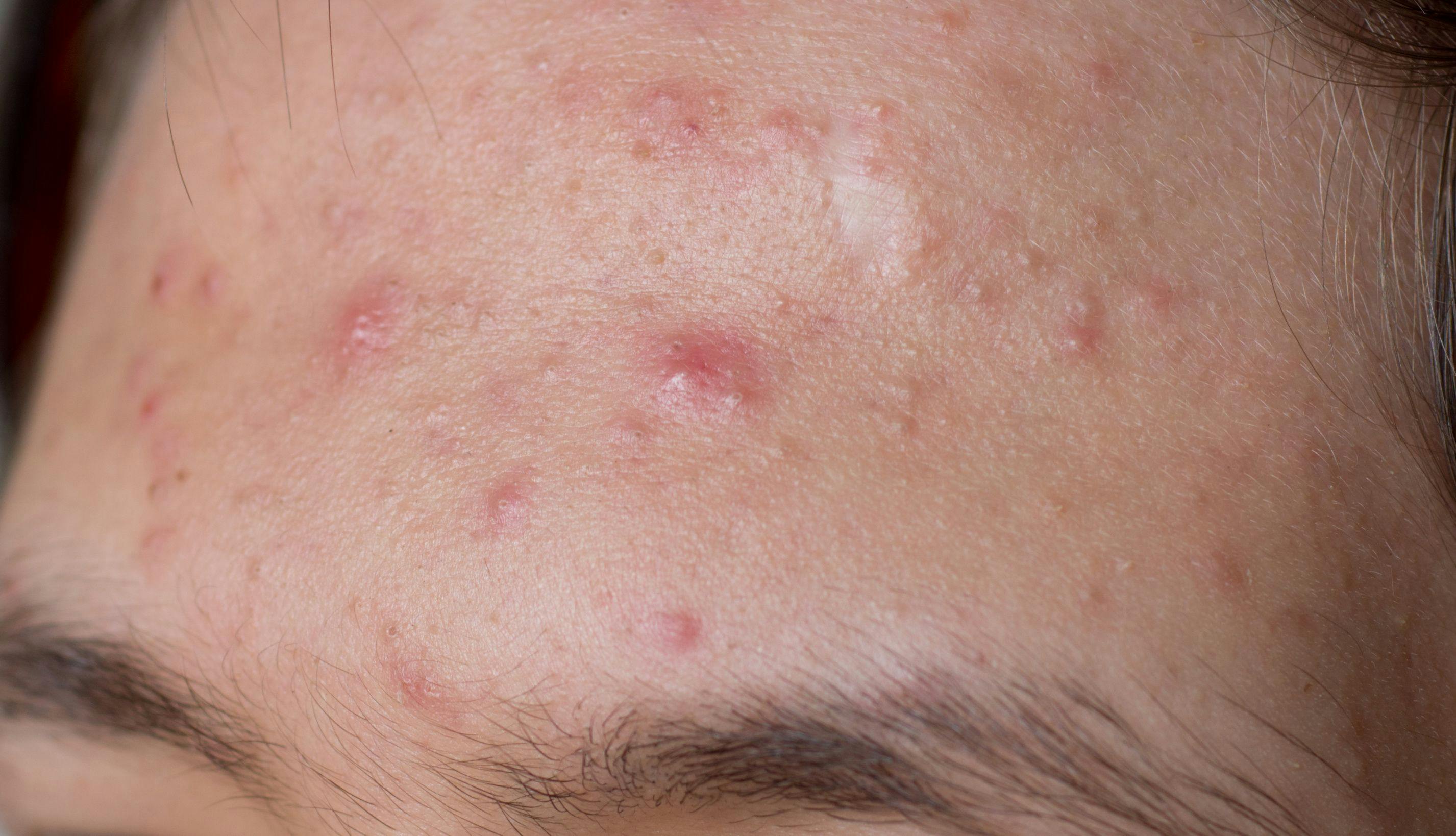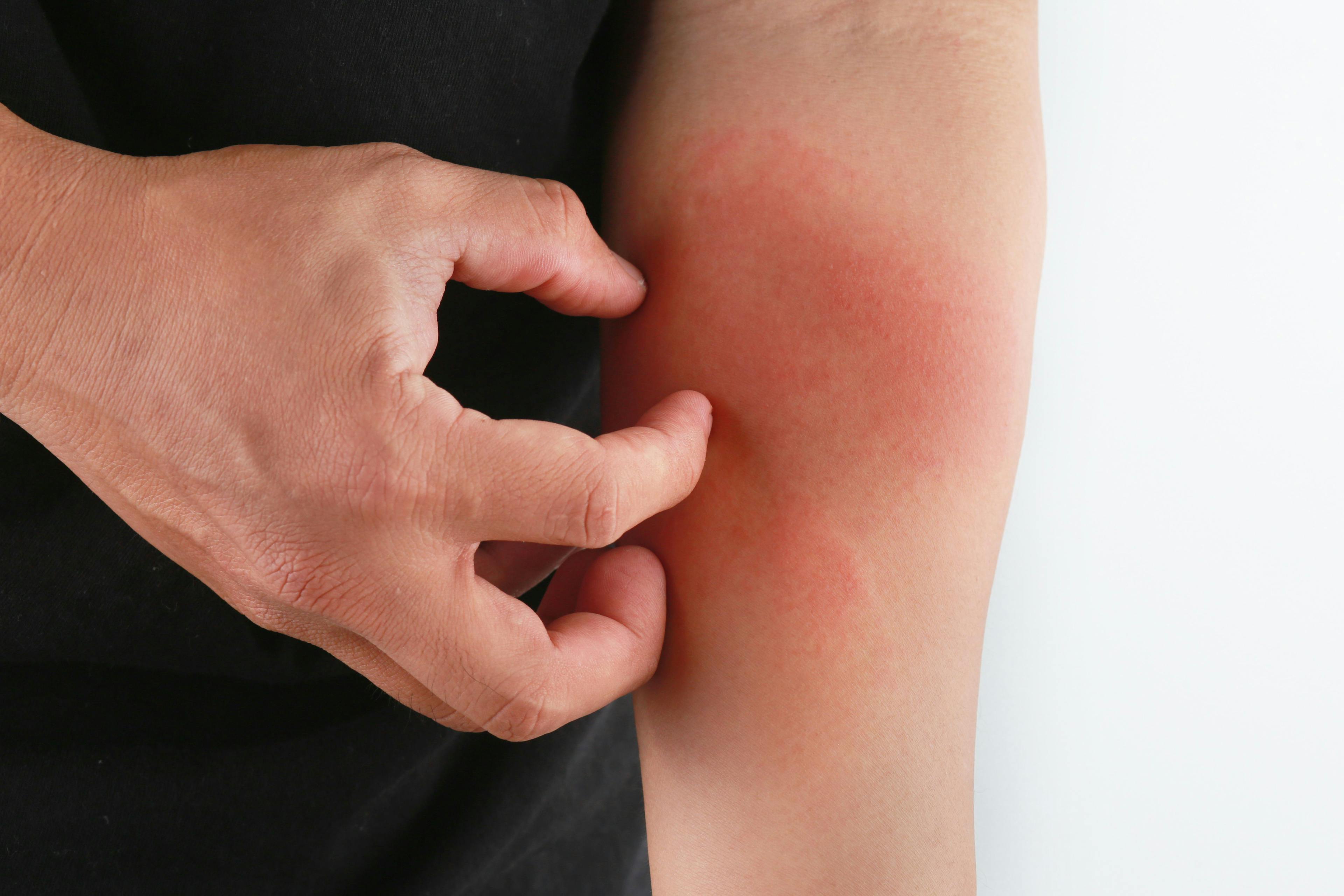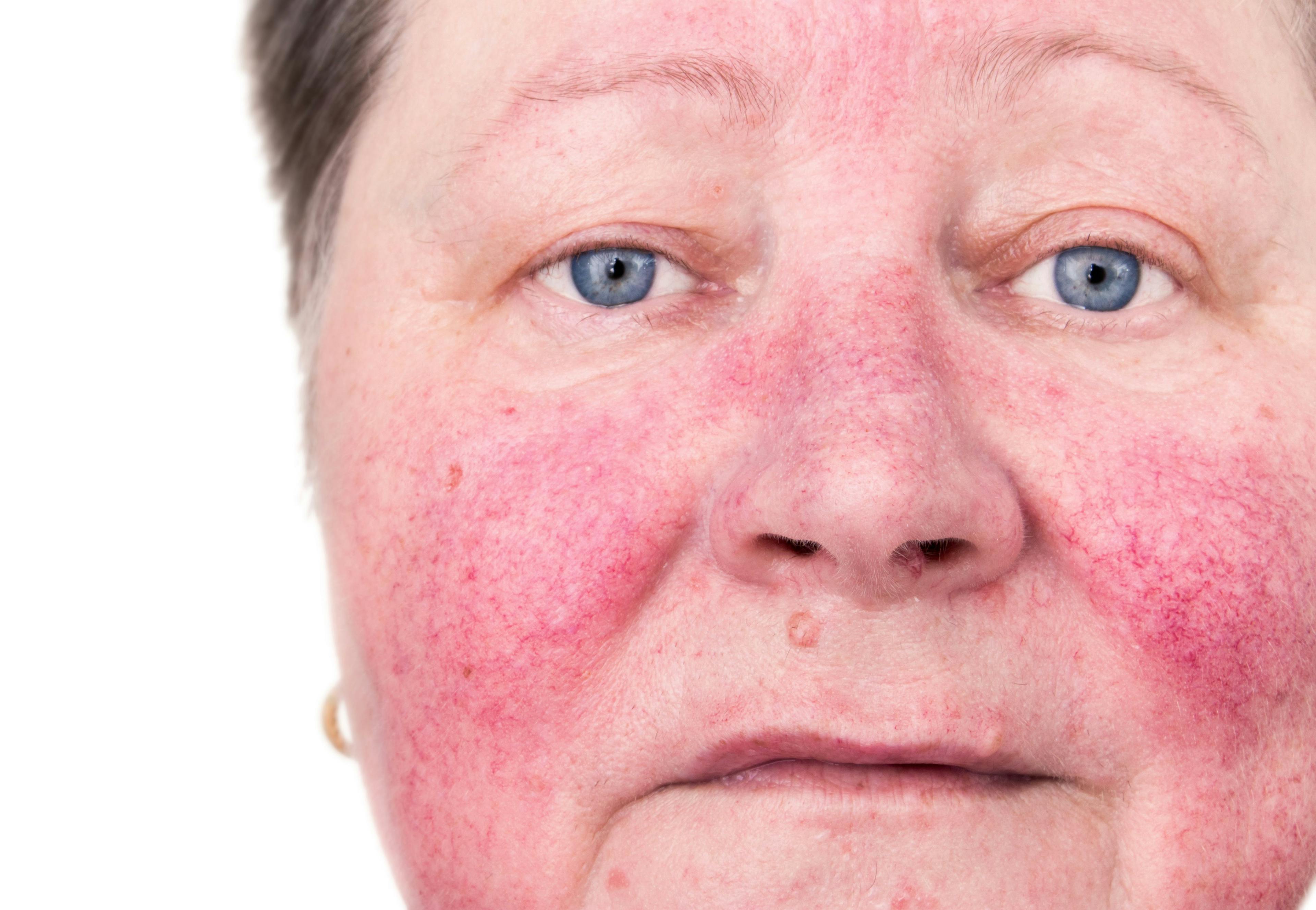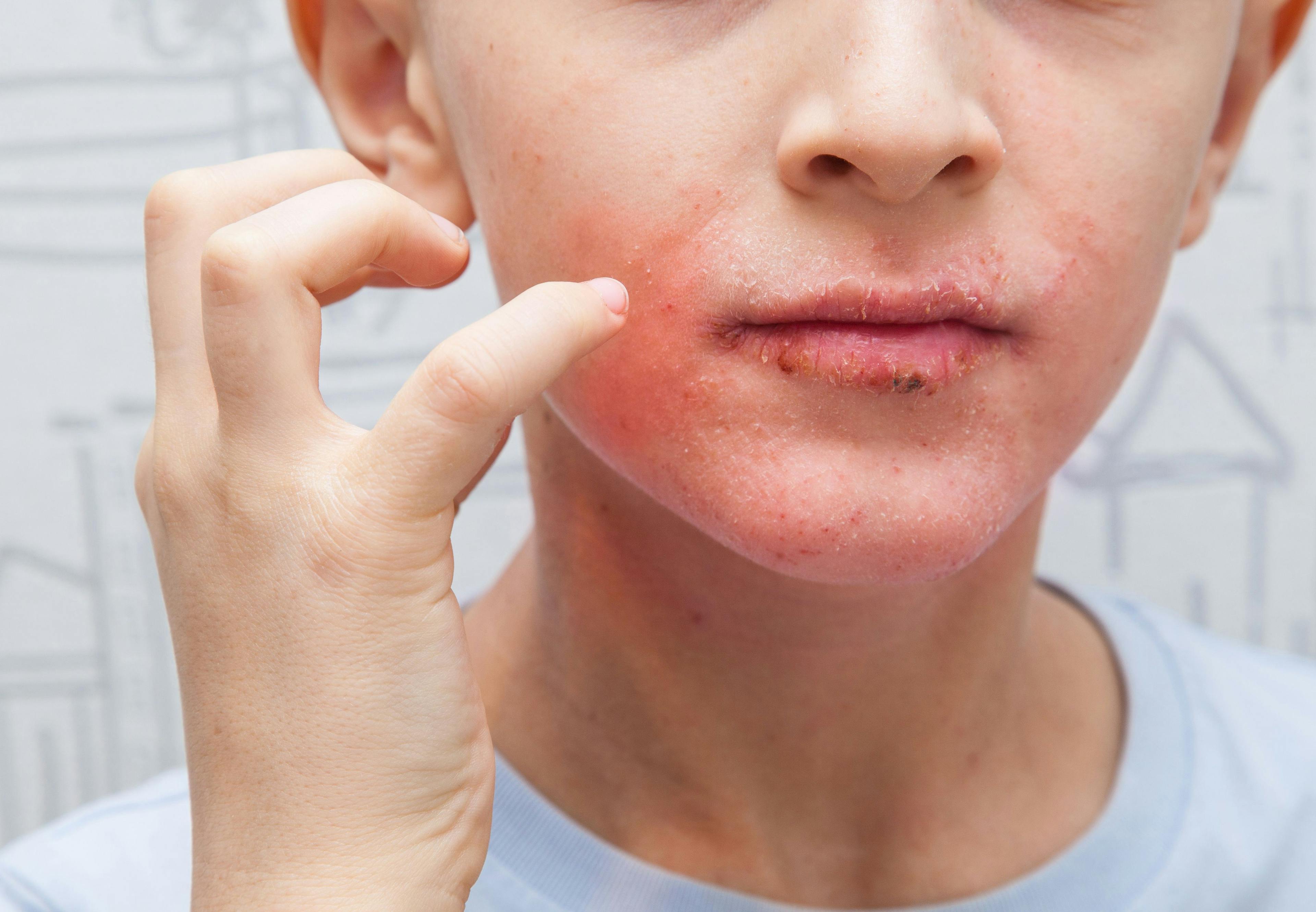- Acne
- Actinic Keratosis
- Aesthetics
- Alopecia
- Atopic Dermatitis
- Buy-and-Bill
- COVID-19
- Case-Based Roundtable
- Chronic Hand Eczema
- Chronic Spontaneous Urticaria
- Drug Watch
- Eczema
- General Dermatology
- Hidradenitis Suppurativa
- Melasma
- NP and PA
- Pediatric Dermatology
- Pigmentary Disorders
- Practice Management
- Precision Medicine and Biologics
- Prurigo Nodularis
- Psoriasis
- Psoriatic Arthritis
- Rare Disease
- Rosacea
- Skin Cancer
- Vitiligo
- Wound Care
Publication
Article
Dermatology Times
Atopic Dermatitis: Early Life Interventions
Author(s):
Key Takeaways
- Early life factors like antibiotic exposure and microbiome may influence atopic dermatitis development, but no single factor is definitive.
- Atopic dermatitis may cause food allergies through increased skin exposure to aerosolized food particles.
In her presentation at the 3rd Annual Society of Dermatology Nurse Practitioners Symposium, Lisa Swanson, MD, discussed the important updates in pediatric dermatology, including early life interventions, food allergies, and more.
Which factor is most important in early life development of atopic dermatitis (AD)? Could it be early antibiotic exposure, transepidermal water loss, the microbiome of the patient, or time spent in the newborn intensive care unit? Lisa Swanson, MD, a pediatric dermatologist at Ada West Dermatology and St Luke’s Children’s Hospital in Meridian, Idaho, explained during her presentation at the 2022 Society of Dermatology Nurse Practitioners Symposium that all 4 of these could factor into the development of AD but that currently there is no clear answer as to which is most important.1
Swanson described how growing evidence links food allergies and AD—an association the American Academy of Dermatology recently explored2—but they might be associated differently than previously thought. It appears in recent research that the AD might actually be causing the food allergy via increased aerosolized food parti- cle exposure through the skin. In fact, a Japanese study looked at 177 infants with severe AD and found that the incidence of food allergy at age 3 was lower in infants that had their AD appropriately treated with topical steroids.3
She noted many parents are asking for natural therapy options but it is difficult to make sugges- tions due to a lack of formal studies. Natural ther- apies that have been studied include the following:
- olive oil, which has been shown to worsen symptoms of AD4;
- cannabidiol, which may help,5 but more research is needed, according to Swanson;
- coconut oil, has antibacterial properties but does not seem to impact the eczema itself6; and
- sunflower seed oil, which may help, but it can be difficult to find a wellprepared formula.4
Swanson said AD is associated with increased risk of multiple comorbidities, including mental health issues, allergies, and cardiovascular dis- ease. Perhaps one of the most devasting issues with having AD is the lack of sleep, which both pediatric patients and parents struggle with. These sleep disturbances can even result in less growth hormone secretion. Less growth hormone often means that kids with bad AD can be low on growth curves with respect to height and weight.
“Growth hormone also plays a huge role in bone formation,” Swanson said. “So that might explain the increased osteoporosis, osteopenia, and fractures in children with AD.” Also, studies have shown that the overactivity of IL-4 may neg- atively effect brain development potentially leading to increased rates of ADHD, anxiety, depression, and autism spectrum disorder in patients with AD. This means that inhibiting IL-4 could have important benefits beyond AD, Swanson said.
She then discussed a few efficacious medications available to treat the pediatric population with AD, such as fluocinolone acetonide 0.01% (Derma-Smoothe) and the Aron regimen (30 g betamethasone valerate 0.1% cream, 24 g mupirocin cream, and 400 g Vanicream). She also touched on bleach baths. Although they have been determined to not kill Staphylococcus bacteria (as was previously thought), they do still have some benefits for those with AD, which Swanson said is probably due to an anti-inflammatory effect on the skin.
According to Swanson, dupilumab (Dupix- ent; Regeneron Pharmaceuticals, Inc, and Sanofi), which is FDA approved for AD in patients 6 years and older, has changed pediatric AD treatment. The FDA has also accepted for priority review the supplemental biologics license application for dupilumab as an add-on maintenance treatment for children aged 6 months to 5 years with moder- ate to severe AD that is not adequately controlled with topical prescription therapies or for whom those therapies are not advisable.7
Dupilumab is a fully human monoclonal antibody that inhibits the signaling of the IL-4 and IL-13 pathways and is not an immunosuppressant. Swanson explained that she does not do a load- ing dose for her pediatric patients. “My personal style has been to not do a loading dose in kids. It’s just too hard on them. I don’t want the first experience to be so traumatizing that they don’t come back,” she said, adding that in the Liberty AD PRESCHOOL trial (NCT03346434), there was no loading dose used in the younger age group.
The other development in AD for patients older than 12 years old includes Janus kinase (JAK) inhibitors. Swanson explained that although there is a black box warning on these JAK inhibitors because of safety concerns stemming from studies done in patients on tofacitinib (Xeljanz) with rheumatoid arthritis who were older than 50 with at least 1 cardiovascular risk factor. While this might not be representative of AD patients, the warning is still important to understand and communicate clearly to patients. It is important to monitor patients on oral JAK inhibitors with labs, skin checks, and regular appointments to assess for any issues.
For patients on oral JAK inhibitors, Swanson explained they should have a complete blood count, a comprehensive metabolic panel, and a lipid panel done at baseline, 1 month, and every 3 months after. In addition, a QuantiFERON-TB Gold test and hepatitis B and C tests should be done at baseline and, depending on the patient, annually. Also, although creatine kinase elevations were observed in past studies, they were transient and not clinically relevant, so in her opinion, there is no need to test a patient for them.
With the oral JAK inhibitors, it is important to consider baseline liver and kidney function and patients must be advised to avoid live vaccines, pregnancy and breastfeeding. “Consider talking about [herpes simplex virus] suppression if a patient has a history of cold sores and consider the Zoster vaccination if they’re old enough to qualify for it,” Swanson said.
Disclosures
Swanson is a speaker for Sanofi-Regeneron, Pfizer, Incyte, Lilly, Janssen, Ortho Dermatologics and Novartis. She has served on advisory boards for Janssen,Lilly, and Sanofi-Regeneron.
References
- Swanson E. Updates in pediatric dermatology. Presented at: The Society of Dermatology Nurse Practitioners Annual Symposium; April 22-23, 2022; Nashville, TN.
- Davis DMR, Drucker AM, Alikhan A, et al. AAD Guidelines: awareness of comorbidities associated with atopic dermatitis in adults. Journal of the American Academy of Dermatology. Published online January 2022:S0190962222000809. doi: 10.1016/j.jaad.2022.01.009.
- Miyaji Y, Yang L, Yamamoto-Hanada K, Narita M, Saito H, Ohya Y. Earlier aggressive treatment to shorten the duration of eczema in infants resulted in fewer food allergies at 2 years of age. The Journal of Allergy and Clinical Immunology: In Practice. 2020;8(5):1721-1724.e6. doi:10.1016/j.jaip.2019.11.036
- Danby SG, AlEnezi T, Sultan A, et al. Effect of olive and sunflower seed oil on the adult skin barrier: implications for neonatal skin care. Pediatr Dermatol.2013;30(1):42-50. doi:10.1111/j.1525-1470.2012.01865.x
- Get the facts about CBD and eczema. National Eczema Association. Published June 18, 2020. Accessed April 22, 2022. https://nationaleczema.org/get-the-facts-cbd/
- Will coconut oil help your eczema? National Eczema Association. Published November 19, 2018. Accessed April 22, 2022. https://nationaleczema.org/get-the-facts-coconut-oil/
- FDA accepts dupixent (dupilumab) for priority review in children aged 6 months to 5 years with moderate-to-severe atopic dermatitis. Regeneron Pharmaceuticals Inc. Press release. Published February 10, 2022. Accessed April 22, 2022. https://investor.regeneron.com/news-releases/news-release-details/fda-accepts-dupixentr-dupilumab-priority-review-children-aged-6/
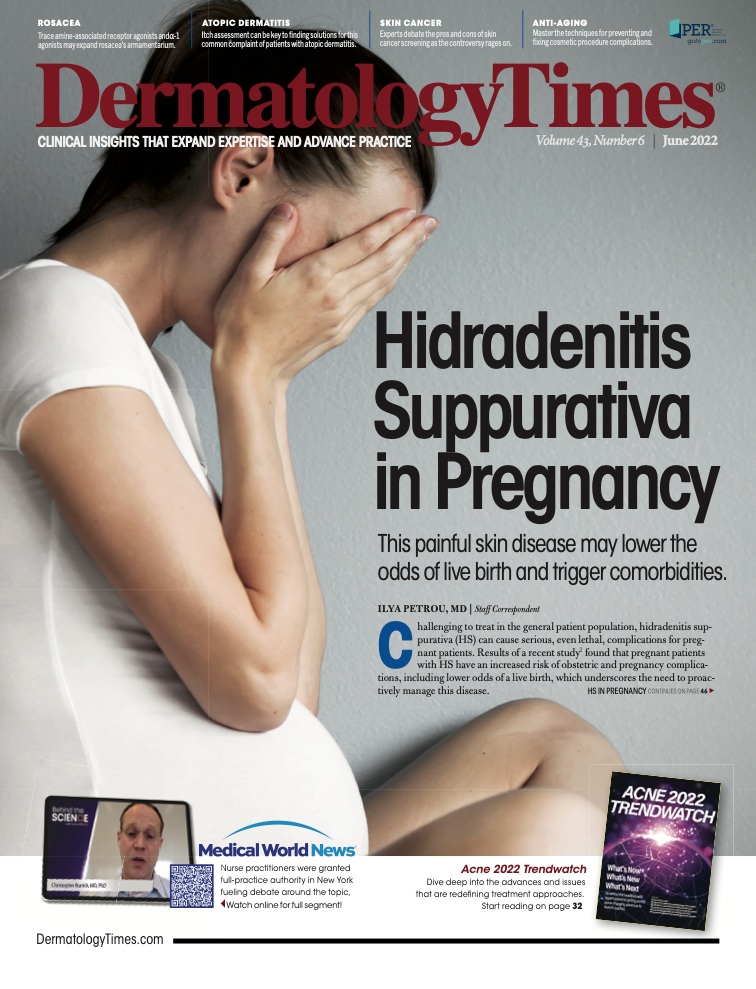
Newsletter
Like what you’re reading? Subscribe to Dermatology Times for weekly updates on therapies, innovations, and real-world practice tips.








